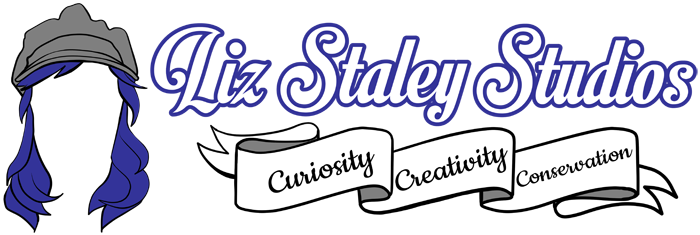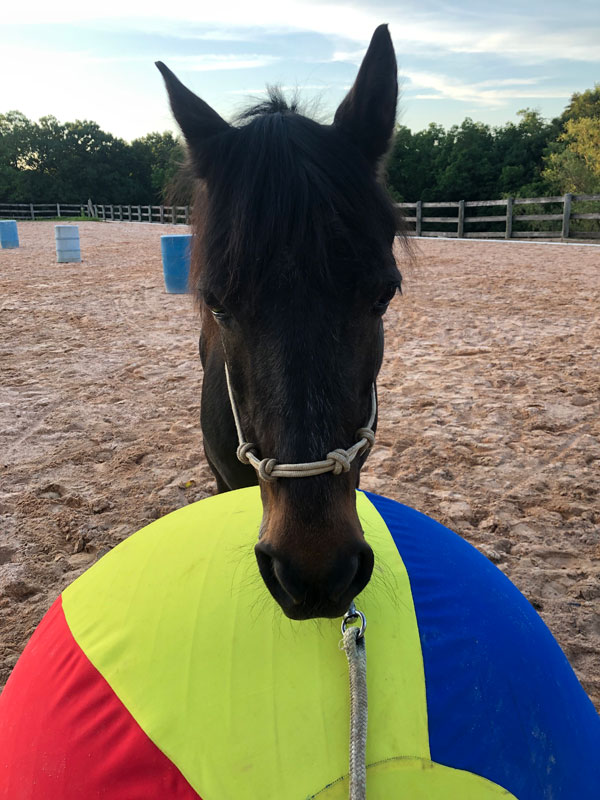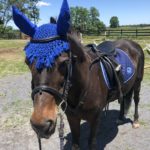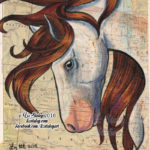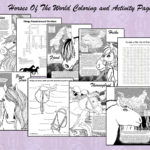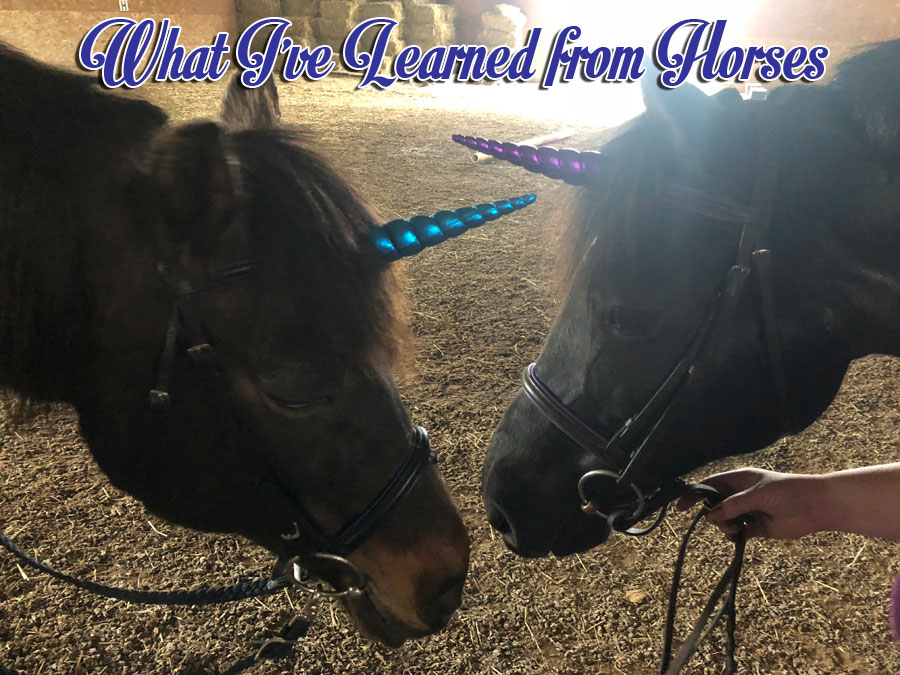
Over the past years that I’ve been able to achieve my dreams of working, caring for, riding, and owning horses, I’ve learned a lot. I read hundreds upon hundreds of pages in books about horses when I was growing up, but even those books couldn’t prepare me for the things that working hands-on with horses would teach me. This list goes beyond such things as general horse care and goes more into the ways I’ve changed as a person because of my contact with equines of all types over the past few years.
Horses Build Confidence
This one should probably be obvious, but I had no idea the effect that just being around horses would have on my confidence levels. I’m not talking about arrogance, either. Horses are inherently dangerous animals to be around, and you need to be confident to even be on the ground with them, much less ride them.
When I first started being around horses, I was scared and timid. I didn’t know what to do to work with them, or even how to properly lead one on a lead rope! It took a lot of weeks of working with Glory on the ground, taught by my best friend, in order to even get to the point where I was confident enough to lunge Glory and make her back up on the lead.
I have discovered that horses respond to a quiet sort of confidence. They respond to the anxiety of other animals, and as someone with an anxiety disorder, this means that I have to get hold of that around my horse or we are going to have a bad day! The horses I’ve had the honor of working with in my time around them have taught me to be a quiet, confident leader, who is both firm and fair in their decisions. Learning this lesson has helped me in my art career and taught me to stand up and be the leader without giving in to my anxiety.
Tiny Steps Turn Into Big Things
One thing I’ve definitely learned, especially because of setting riding goals, is that small steps forward are better than no steps at all. The first riding goal I ever set was to learn how to canter, and after that I wanted to be able to canter on my horse. Glory has a pretty terrible canter sometimes. She rushes into it, bucks in her transition, she’s off-balance, falls forward, and she pulls herself with her front legs instead of pushing with her hind end. To a person who is a bit timid in general, trying to get her to canter under saddle is downright terrifying. You MUST commit to the canter aid, you can’t be wishy-washy with your aid, and you need to be balanced and breathe.
So, in order to get to my goal of cantering on my own horse, I had to break every part of getting her into the canter down into small steps. Glory also needed to build her strength and stamina so that she would rush less. Over many, many months, we worked both in the harness and under saddle to build strength at the trot, work on transitions, and I also worked on my canter aids. Then, once I was used to the feeling of her super-fast-trot-that-is-trying-to-be-a-canter, we worked on me getting my aids clear and precise enough that I could get her to canter just a few strides. Once I knew that I wouldn’t die or fall off with a few steps of canter, we worked on getting further and further around the arena, and now cantering on my horse is one of the joys of my riding time.
Though we may want to get to the end of the road as fast as possible, sometimes we need to break down the trip into small steps and just go forward a tiny bit each day. Eventually, you reach your end goal and grow exponentially in the process.
Be Present and Listen to Your Feelings
Long hours of doing barn chores, riding, and doing all the other things that horses require you to do leaves you with a lot of time to be in your own head. Especially if you’re at a larger barn and spending hours and hours each day doing things all by yourself! Horse care, whether it be mucking stalls, feeding, brushing, or even going for a hack, can be contemplative and quiet. In a world that is becoming more and more noisy, this quiet is invaluable sometimes.
I’ve found that time with horses has really put me in touch with my thoughts and feelings. If I’m having a bad day, the barn is the best therapy ever. But if I insist on continuing to be in a bad mood after I get to the barn, then therapy is not going to go well that day. Some of the worst days I’ve had around horses are days when I’m in a bad mood and trying to stay in that bad mood. The day I crashed my first cart was a day when I was in a bad mood and didn’t really want to go for a drive, but I did it anyway and ended up destroying a breaking cart. Now, could that have been a coincidence? Sure. But did my bad mood possibly have a hand in distracting me from what I was supposed to be doing? Possibly.
Horses have taught me to be present in the moment. To reach inside and try to figure out what I’m actually feeling before I get my horse reflecting something I don’t want back on me. If I’m afraid, my horse will be afraid. If I’m calm, Glory will pick up on that and trust me to take care of her.
Speaking of trust…
Trust In Others
Working with horses requires a lot of trust, not only in the large prey animals that you’re working with but also in the other people that you can encounter along the way. In order to begin doing things with Glory, we had to learn how to trust each other. She had to know she could count on me to not lead her into harm, and I had to learn how to read her body language and adjust my own so we could communicate. Earlier, when I was talking about learning how to canter on Glory, I left out the fact that we had to learn not only the physical way to get to the canter but also learn to trust each other at that gait. I had to trust that Glory wouldn’t throw me off and run away, and she had to trust that I was ready to go.
Because of the way my childhood friends treated me, I found it hard to really trust people for a long time. For most of my life I’ve had only small groups of friends, and most of them I would keep at a little bit of a distance out of fear that someone would turn around and hurt me. But if you aren’t keeping your horses on a personal piece of land and doing all their care yourself, while teaching yourself to ride, then you HAVE to trust others. For several years I kept Glory at a boarding barn, and though I worked there 5-6 days a week and could make sure she was being taken care of, I had to trust that she would get her dinner, would be fed and taken care of in the hours I wasn’t there and on my days off. Later on, when I stopped working at the barn I kept her at, I had to trust even more that my horse would be taken care of. In a boarding barn, you need to trust that other people will respect your property and respect the facility so that it’s all in good working order to be used. And now that my best friend and I do self-care for our horses, we each have to trust that we’ll do what needs to be done to take care of our girls when the other person isn’t there and make informed decisions on what they need.
I’m happy to say that today I have a great group of wonderful friends who I trust, all because of horses!
Accept the Things You Cannot Change
Riding a horse isn’t like running marathons or playing soccer. Your teammate in equestrian sports is a huge prey animal with a fight-or-flight instinct, a distinct personality, and a mind of its own. Even after you’ve gained their trust, worked with them, and taken the baby steps, sometimes your time with your horse just might not go as planned. Horses have bad days, they have days where they’re tired, cranky, or just want to go back to the barn and eat instead of being ridden. You have to pick your battles when you’re around horses. It’s a delicate balancing act to be both assertive and caring, to be a leader and also to know the limits of your team.
Because of horses, I have learned that sometimes you just need to know when you’ve done all you can do. You can have a plan for your ride or your groundwork session, and your horse just might not be feeling it. In those cases, you have to learn to be flexible and patient. You don’t have to give up on those bad days when things aren’t going to plan, but learn how to adjust the plan so that you can achieve a different or smaller goal. If you can’t get your horse to canter the entire way around the arena, go for a small circle, or one side of the arena, and be happy with that. This goes hand-in-hand with the second lesson I talked about, where you sometimes must take small steps in order to get to the big goals.
Those are five things that working with horses have taught me. I’m sure I could come up with a hundred more, but those are the five biggest ones that I’ve noticed have an impact on me even in my non-horsey life. What lessons have horses taught you? Let me know!
